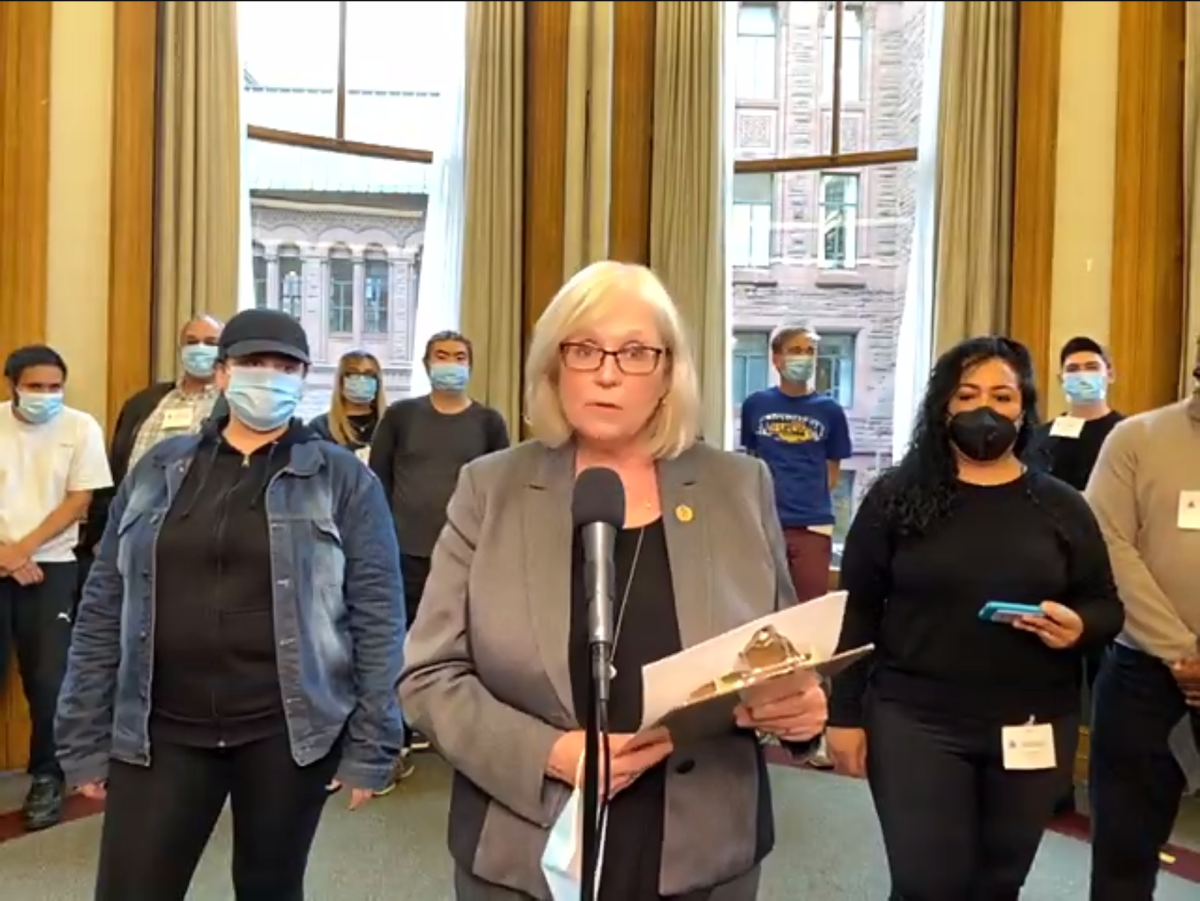A new bill from the Ontario NDP is looking to protect workers who miss out on minimum wage, vacation days and other workplace rights due to being classified as gig workers.

The classification is common for people who work for Uber and Lyft, in sectors such as food production and shipping, and among delivery drivers, cleaners and home health-care workers.
“My bill would amend the Employment Standards Act to make Ontario the first province in Canada to legislate the gold-standard ‘ABC test’ for working classification,” said London West MPP Peggy Sattler during an unveiling of the bill on Monday morning.
The test was first popularized by California and requires employers to answer three questions to determine whether a worker should be considered an employee and not an independent contractor.
The questions are as follows:
Part A: Is the worker free from the control and direction of the hiring entity in the performance of the work, both under the contract for the performance of the work and in fact?
Part B: Does the worker perform work that is outside the usual course of the hiring entity’s business?
Part C: Is the worker customarily engaged in an independently established trade, occupation, or business of the same nature as the work performed for the hiring entity?

Get breaking National news
“Instead of making workers responsible for proving that they are not independent contractors, a legally complex and difficult process, the test puts the onus on employers to prove that a worker is not an employee,” Sattler said.
“Of course, we know that there are many freelancers, entrepreneurs and other contact workers who are legitimate independent contractors, which is why my bill also sets out the criteria for bona fide business-to-business contracting relationships.”
The goal of the bill is to grant rights and protections under the Employment Standards Act to those who are currently missing out, an objective that’s been sought by other labour activists including the Canadian Labour Congress.
Places like Denmark, Italy, Spain, the U.K. and California have passed rulings that recognize gig workers as employees.
In August, Ontario’s Superior Court certified a class-action lawsuit against Uber Technologies Inc. that’s tied to the company’s refusal to classify its couriers and drivers as workers.
The class action filed in 2017 by Samfiru Tumarkin LLP, with Uber Eats driver David Heller as representative plaintiff, argues Uber couriers should be entitled to minimum wage, vacation pay and other protections because they meet the definition of employees under Ontario’s Employment Standards Act.
When asked about how many gig workers there are in Ontario, Sattler said there is a lack of accurate data, but “estimates are as high as 10 per cent.”
“What we have certainly seen during the pandemic is an explosion in those kinds of gig jobs. It’s the Uber Eats and the Skip The Dishes, those kinds of workers that we have relied on … to deliver food, to deliver medications, ” Sattler said.
“These are the people who have been the backbone of our society over the last 19 months of COVID-19.”
— with files from The Canadian Press












Comments